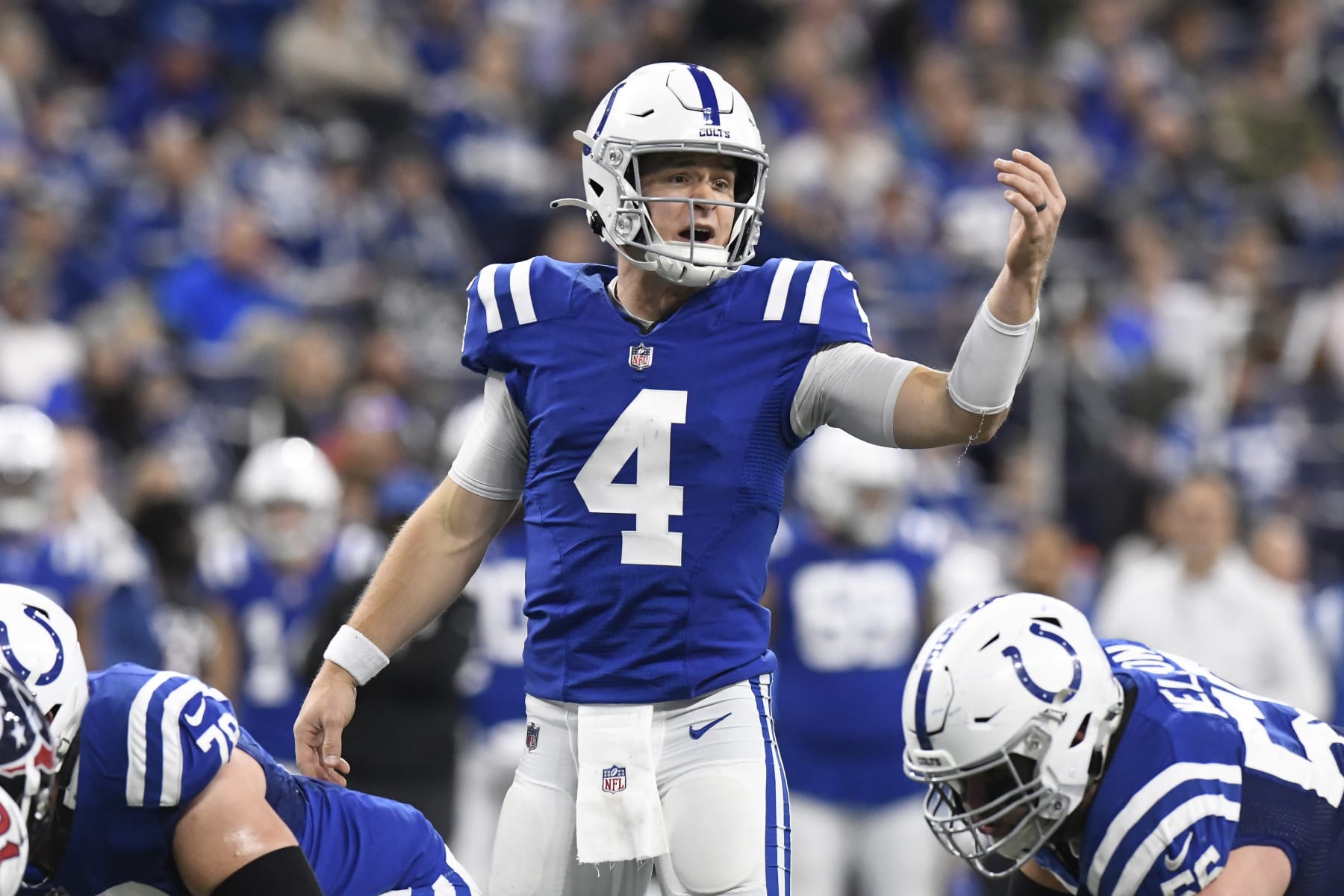
Andrew Luck finally reveals why he walked away from the NFL
THE DAY AFTER he retired, Andrew Luck reached into the shower in the bedroom at his Indianapolis condo and turned the knob. He stepped back and waited for the water to get hot. It was the afternoon of Aug. 25, 2019, and he was in a fog over what he had done. When Luck had told Indianapolis Colts executives that he was going to walk away from football, they didn’t believe him. Couldn’t fathom it. “When you going to turn it on?” they asked two weeks before the season began. “I’m not,” Luck said. When he had told his teammates he hadn’t been able to live the life he wanted to live, they said they understood. Didn’t argue. They said they’d seen his pain and now sensed his relief. But his eyes dampened and his face reddened when he told them. He knew they wanted him for a shot at a Super Bowl, and he knew he wasn’t going to deliver. He also knew, no matter how guilty he felt, that he wasn’t going to change his mind.
When it came time to tell the rest of the world, Luck wrote it down. He sat at the counter in his kitchen and composed a retirement speech. He wrote longhand on a notepad and then typed parts and pieces into his laptop, polishing and rearranging as he went, titling it: ALUCK – FIRST DRAFT. It was strange to write. Usually, retirements are celebratory events at the end of storied careers. Nobody, not even Luck, would be celebrating this one. He used phrases like “I have a lot of clarity in this” and “it is the right decision for me.” The cycle of getting hurt, rehabbing, getting hurt again, had brought him to this place, he said. A place where it was time to “remove himself from football.”
The sports world was stunned. This was a generational quarterback. A quarterback on track for the Hall of Fame. A quarterback who’d just won the Associated Press NFL Comeback Player of the Year Award. A rare quarterback who seemed born to do what he was doing. This was Andrew Luck.
How could he walk away?
He delivered his speech, with trembling conviction. And the next day, at home, he couldn’t pick an emotion. They were all tangled together, relief mixed with mourning, guilt mixed with a profound unburdening, a dozen thoughts and feelings that he couldn’t name or even really describe. He had no idea what came next, or how hard it would be to find out. All he knew was that he didn’t have to pretend anymore. He stepped into the shower and stood under the water, and with the steam rising started to cry.
ALMOST THREE YEARS later, on a May morning in Indianapolis, Andrew Luck is holding a fishing rod and sliding into waders in a dirt parking lot a few miles from his house. He’s 33 now. He just said goodbye to his wife, Nicole Pechanec, and dropped off their 3-year-old daughter, Lucy, at preschool. Another daughter, Penelope, is due in two months. After Luck retired from the Colts, he tried to find new outlets for his obsessions. He makes a perfect cappuccino, the whole beans purchased from a local shop where he always tips generously. Skiing fills his need for an outdoor physical act that requires total concentration, with speed and danger. Cycling provides the rush of skiing but in warm weather, and is easier on the joints. Rowing is something Nicole encouraged. And he loves fishing for all the usual reasons: the quiet and detachment, the hope and adrenaline, the fact that he can go alone or with friends.
He stands outside his black Audi sedan, fiddling with gear, and threads his line. A group of kids watches him from a distance. Luck is slimmer and more defined than he was in his playing days. His eyes are under a heavy brow, conveying little and absorbing everything. He is still famous around town, for the hope he once provided and the fading hope that he could still one day provide it again. He snakes through woods, down to a quiet river. There are some small rocks set up on a bank, where Lucy arranged them a few days ago when she came here with her daddy. That makes him smile. He steps into the water, cold and clear and perfect for bass, and lets out line in quick movements.
Time stretches out in front of him as it has stretched out in front of him since he threw a football better than almost anyone on the planet; strange and confusing, liberating and exhilarating, as he tries to understand how a game turned into an obligation and into a corruptive force.
“How do you fall out of love with something you loved?” he says.
He reels in his line and casts again and stares at the shimmering surface of the water.
“Elements of decisions of why I did it that I’m still processing,” he says.
“I think …”
He feels a tug.
“F— yeah, dude!”
His line tightens.
“Haha!”
He sets the hook.
“Dude! Hahaha. Dude, it’s such a good feeling. Yes! Oh, it’s such a good feeling.”
The struggle lasts seconds before Luck pulls the bass from the water. He cradles it in his hands, which are gangly and huge, big enough to swallow laces or a fish. “Hey, buddy,” he says, as he gently pries the hook from the fish’s mouth and lets it loose. A silver flash disappears beneath the surface. He casts again, waiting for another tug on the line, over and over again, cast after cast, fish after fish, his best morning ever at this hole, until Lucy is due to be back from school, and it’s time to go home.
“YOU KNOW WHY you’re here, right?” Luck asks me in the kitchen of his house just north of Indianapolis on a quiet morning this past spring. It’s the first in a series of days we’d spend together over five months this year, the first time he has spoken at length publicly since he retired.
“No,” I say.
“Because you ski.”
He’s only half-joking. I had written him a letter in October 2019, months after he walked away. He replied that he wanted to talk to me, but only when he was ready. Might be two months or two years, he said. He researched me and learned that I extreme ski. So does he. He has maps of resorts framed around his house and says there are days when he actually has considered going to work on the ski patrol.
He pulls out a dozen eggs and some bacon while talking on the phone. It’s amusing to watch him cook for Lucy, measured against what he could be doing today. If he had wanted to, Luck would be entering his 11th NFL season, probably with a contract worth double the $139 million deal he signed in 2016. Who knows, he might have a Super Bowl ring or two. He also might be single and angry, leaving himself to wonder if it was worth it.
This is his routine on most days, while Nicole works as a television producer. He holds a tiny cast-iron skillet, focusing on the egg he cracks. He watches it sizzle, the only noise in the room.
“Perfect size,” he says.
His house is bright and spacious, nestled on a lake just north of Indianapolis. He designed it before he retired, deploying his Stanford architecture degree to create a place “built for a quarterback,” he says. Its physical therapy room is now a guest room. A film room is now an office. The house is five minutes from the Colts facility. He drives past it almost daily. Only recently has he decorated the house with football stuff, and most of it from Stanford. There is only one item from his pro football days on display: a framed painting that he received for winning Comeback Player of the Year in 2018. In it, he is in full uniform, standing on a boat in a calm sea, no expression on his face, with a life preserver floating alongside him if he wants to jump.
MOST DAYS AT sunrise, with life still and coffee hot, Luck sits at one of the two desks in his study and writes down his thoughts, always in longhand on yellow legal pads. He read a self-help book that advocated journaling before the day begins in earnest, stream of consciousness stuff, and he says “it feels good to do something for yourself.” Sometimes he journals about his daily tasks, sometimes it’s deeper. The subtext is often football, and how a scripted life didn’t fulfill the script. He rarely goes back and rereads them. He says he doesn’t consider himself a strong writer. He journals to journal, not only helping him sort out his thoughts and clear his mind, but to feel closer to clarity.


